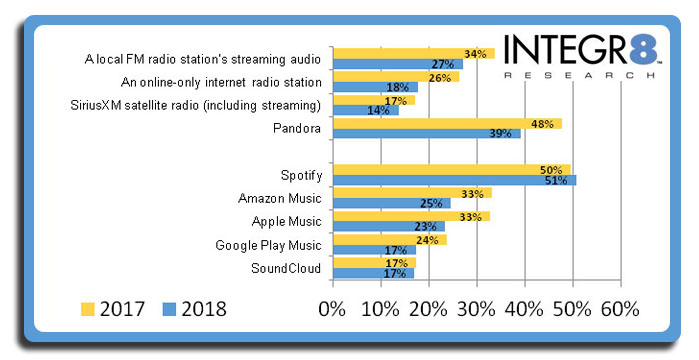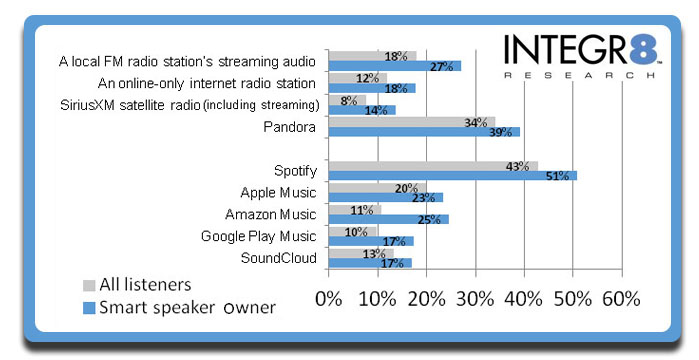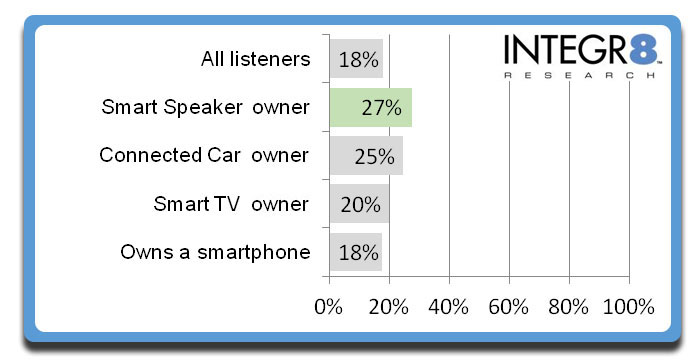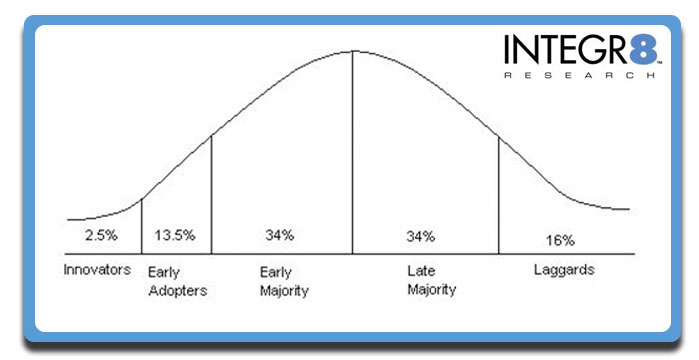Part one of a five-part blog series, “The Alexa Effect: How Radio Can Thrive in a Connected World”
When smart speakers appeared, savvy radio programmers instantly saw the potential for these audio-oriented devices to bring their programming back into listeners’ homes, especially as traditional AM/FM radios become endangered species.
We’ve told listeners precisely what to say to get their A.I. lady to stream our station.
We’ve invested in Alexa Skills to ensure listeners can ask for our stations by name.
Are all those on-air promos paying off with increased streaming of local FM stations by smart speaker owners, especially as smart speaker ownership grows?
Not exactly.
More people own smart speakers, but fewer smart speaker owners are streaming local radio
Back in 2017, when we first talked with 15- to 39-year-olds who are partisans to contemporary-formatted radio stations, only 14% of listeners owned smart speakers. By the end of 2018, 24% owned smart speakers.
Although there are more listeners with smart speakers today, fewer are streaming local FM radio. In 2017, 34% of smart speaker owners regularly used a local FM station’s streaming audio to listen to music. Today, the percentage of smart speaker owners who regularly stream local radio has fallen to 27%.

What services do smart speaker owners use to listen to music?
That decline sounds discouraging, but don’t panic. There are three reasons this decline doesn’t signify a smart speaker disaster.
#1: Smart speaker owners are 50% more likely to stream their local stations
First, smart speaker owners are still 50% more likely to stream a local FM station than listeners overall.

What services do you use to listen to music?
#2: Smart speaker owners are the biggest streamers of local radio
In fact, smart speaker owners are more likely to stream local radio than owners of any other smart device we examined.

Who streams local FM radio?
#3 Smart speakers are becoming mainstream products
In 2017, Amazon Echo and Google Home were still “early adopter” products. The same listeners who were first to embrace all kinds of new online music services were also the first listeners to bring Alexa into their bedrooms. Today, smart speakers have grown to the “Early Majority” stage, where buyers look more like everyday music consumers instead of rabid fans.

The Product Lifestyle Curve
Today’s smart speaker owners are significantly less likely to be regular users of second-tier on-demand streaming services. Amazon Music and Google Play Music* (*Still existed at the time) all declined more than streaming of local FM radio.
The only music service that today’s smart speaker users are more likely to use now than in 2017 is on-demand market leader Spotify.
While these results may suggest using Alexa as the new AM/FM radio isn’t exploding because of our efforts, they do also confirm radio is on the right track by focusing on smart speakers. Focusing on this one device will prove more effective than trying to educate listeners about every possible device that can stream our stations.
However, if you assume the smart speaker is synonymous with Alexa, you’re making a mistake.
We’ll show you why in our next post.
Watch The Alexa Effect Webinar

Pingback: Read All About The "Alexa Effect" - Radio Ink